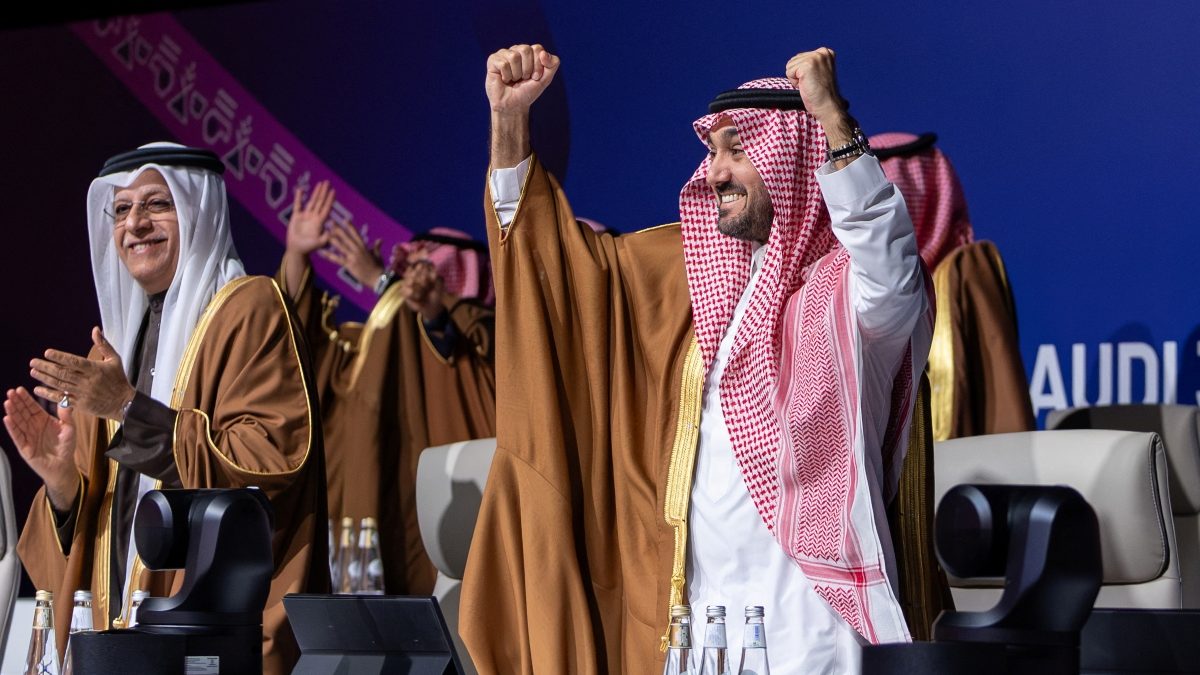)
FIFA on Wednesday made some major announcements with regards to future men’s World Cups. The 2030 FIFA World Cup will be jointly hosted by Spain, Portugal and Morocco, with Argentina, Uruguay and Paraguay hosting a match each to mark the centenary of the World Cup. The next edition, in 2034, will be hosted by Saudi Arabia. The announcement of Saudi Arabia hosting the FIFA World Cup in 10 years’ time, however, has raised controversy. But, why?
How Saudi Arabia were selected as hosts
To start off with, Saudi Arabia would have had to wait till 2042 to host the World Cup after Qatar had hosted the tournament in 2022. However, with the 2030 edition being held across three continents (Europe, Africa and South America), and the 2026 edition to be held in USA, Mexico and Canada, that put Oceania and Asian football federations ahead.
Australia had left the Oceania Football Confederation (OFC) for the Asian Football Confederation (AFC) in 2006, and that meant no country from the Oceanias were eligible to host the tournament. Having said that, New Zealand do not have the minimum standard required to host a FIFA men’s World Cup. Indonesia, however, were in talks with Australia to jointly host the World Cup but Indonesia eventually backed Saudi Arabia.
The Association of South-East Asian Nations (ASEAN) had also taken into consideration hosting bids from countries like Vietnam, Indonesia, Thailand and Laos but that failed to materialise after Indonesia backed Saudi Arabia. China, too, did not enter the bidding race and that left Saudi Arabia as the lone bidder. FIFA gave countries 25 days to launch their bids, and Saudi Arabia expressed interest to host in almost no time.
Why is Saudi Arabia hosting 2034 FIFA World Cup controversial
There are still 10 more years for the 2034 FIFA World Cup, but the decision to hand Saudi Arabia hosting rights has created controversy. Issues surrounding human rights violations have been ongoing in the country, and it does not end there. Treatment of women in the country has been questioned as well as the treatment of the LGBTQ+ community. Similar concerns had also been there in the build-up to the 2022 World Cup in Qatar.
“FIFA set clear human rights standards that any bidding country must meet, yet it is clear that Saudi Arabia’s bid for the 2034 World Cup currently falls far short,” Steve Cockburn, Head of Labour Rights and Sport at Amnesty International, told ESPN.
“The bid’s human rights plan simply ignores many of the enormous risks associated with hosting a mega sporting event in a country with such an atrocious human rights record.
“Saudi Arabia’s World Cup human rights plan says nothing about the brutal muzzling of human rights activists or criminalisation of LGBTI people, nor does it outline whether or how it will put an end in practice to the abusive kafala system that exploits migrant workers. It is astonishing that such blatant risks can be so flagrantly ignored,” he added.
There were even widespread protests by migrant workers in Qatar building up to the World Cup in two years ago. A majority of stadiums built for the Qatar World Cup were ahead of schedule, however, deaths of migrant workers who were involved in their construction raised concerns. The Qatar World Cup chief had even claimed that 400-500 workers died in connection with World Cup projects.
Sportswashing is also another term that has been doing the rounds. It is when a country hosts major sporting events to distract the public from negativity. And Saudi Arabia have been accused of sportswashing from human rights groups.
Saudi Arabia’s Deputy Crown Prince Mohammed bin Salman, however, has denied these accusations.
“If sportswashing is going to increase my GDP by 1 per cent, then we’ll continue doing sportswashing,” he told ESPN. “I don’t care (about the term). I have 1 per cent growth in GDP from sport and I am aiming for another 1.5 per cent,” he added.
There’s still time for the 2034 FIFA World Cup, but the build-up towards the tournament is surely set to be a talking point in the next decade or so.
is on YouTube
Copyright @ 2024. Firstpost – All Rights Reserved

